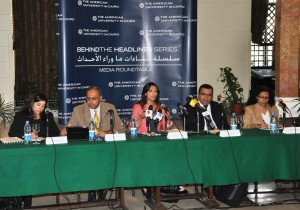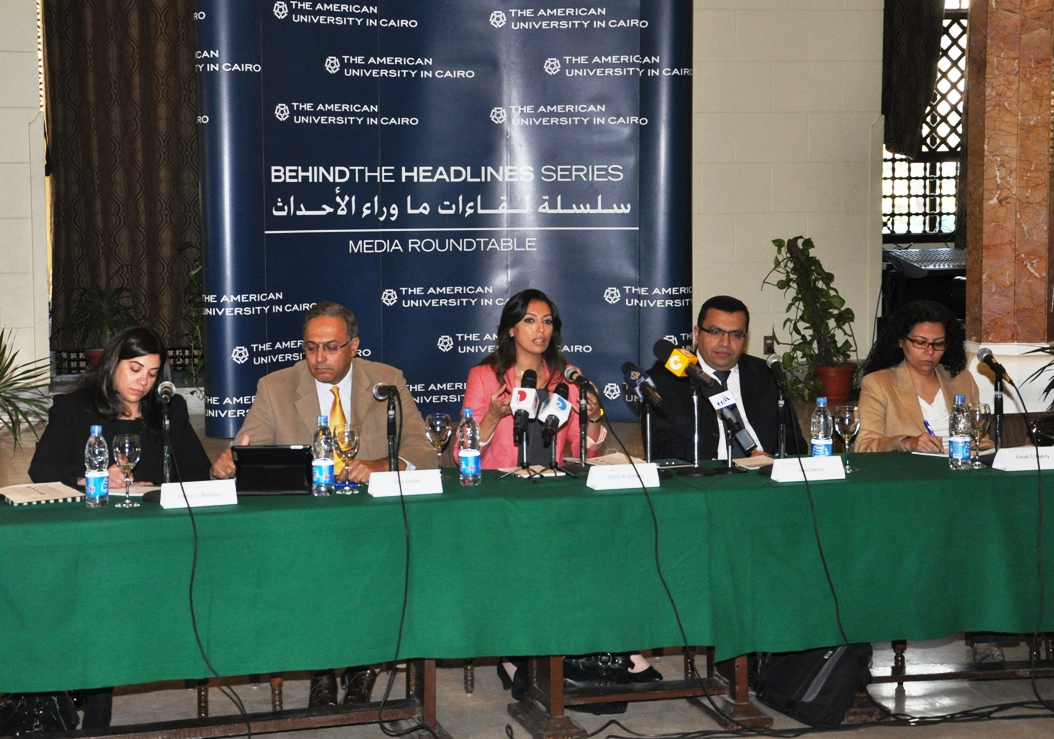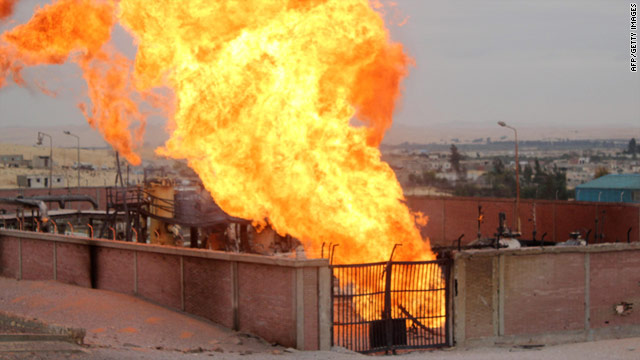
Photo: A roundtable held on Tuesday at the AUC
(Photo handed by AUC)
A group of American University in Cairo (AUC) professors agreed that women’s status in Egypt hasn’t deteriorated much since Islamists’ took power.
In a roundtable held on Tuesday at the AUC, political science professor Rabab El-Mahdi stated that Egyptians’ frustration stems from the fact that women’s status didn’t improve after the 25 January Revolution.
“The revolution broke out because the people weren’t happy with a lot of things in the country, women’s status included,” El-Mahdi said.
The issue of sexual harassment was widely discussed during the roundtable. Amina Elbendary, assistant professor of Arab and Islamic civilization, stated that sexual harassment is generally a trial to outcast women from the public sphere. El-Mahdi said that sexual harassment needs to be addressed both as a political as well as social tool.
“Sexual terrorisation is a popular tool used during wars and revolutions to scare women,” said Saeed Sadek, a political psychologist. “The reason why it has proliferated lately is that women who never took to the streets in the past are now eager to join protests.”
ElBendary stated that the fact that women are more likely to admit to having been sexually harassed or assaulted, and face their harassers is a positive outcome of the 2011 Revolution.
Sadek blamed the increased prevalence of harassment on the lack of punishment against the harassers. El-Mahdi added that the Ministry of Interior is incapable of repressing harassment since it has been practicing it on citizens for a very long time.
“The ministry would assault women inside detention facilities to force confessions out of their male associates since the 1990s,” El-Mahdi said. “It is such actions which paved the way for the proliferation of sexual harassment in the streets.”
El-Mahdi stated that Islamists and the mainstream opposition are equally responsible for the proliferation of sexual harassment during protests. “The Islamists in power refuse to address the problem; they just brag about how such actions never take place in protests they sponsor,” she said.
The roundtable participants also discussed the status of women in the new constitution and whether it improved when compared to previous constitutions. Sadek stated that the new constitution failed to reflect the prevailing revolutionary trends in society.
“The revolutionary symbols, especially the female revolutionaries, were absent from the constitution-drafting scene,” said Hani Henry, AUC associate professor and graduate advisor.
El-Mahdi stated that constitutions are not an indicator to measure women’s status in society. “Most constitutions worldwide lack the articles we were looking for in regards to women’s rights,” El-Mahdi said. She added that women’s status stems from the society’s culture and not from constitutions.
“Nevertheless, this constitution, like its predecessors, lacked the gender entry which stresses equal rights of men and women,” El-Mahdi said. She said that the issue has nothing to do with women’s poor representation in the Constituent Assembly which drafted the constitution. “Some women’s mentality is even more masculine than men’s.”
The same approach was adopted when discussing women’s representation in parliament. Elbendary said that when linking women’s status to parliament, the focus shouldn’t be the number of women inside parliament, but their actions.
“The problem in Egypt is that political institutions are from a masculine generation,” Sadek said. “Women allowed access are viewed as mere visitors or useless ornaments.”
Sadek stated that when regimes use women and advocate their status as tools, the collapse of such regimes is usually coupled with the deterioration in women’s status.
El-Mahdi stated that women’s representation is also absent among the mainstream opposition. “I would like to see a National Salvation Front conference where women are at the front lines,” she said. She stressed that women’s representation should, to some extent, resemble the majority of women in society.
“Liberals would make fun of the looks of female parliamentarians who come from an Islamist background though the appearance of such parliamentarians holds a striking resemblance to that of average Egyptian women,” stated El-Mahdi.
The roundtable was moderated by Al-Jazeera Mubashir Misr presenter Doha El-Zohairy. It is the third in a series of roundtables held at the AUC.


